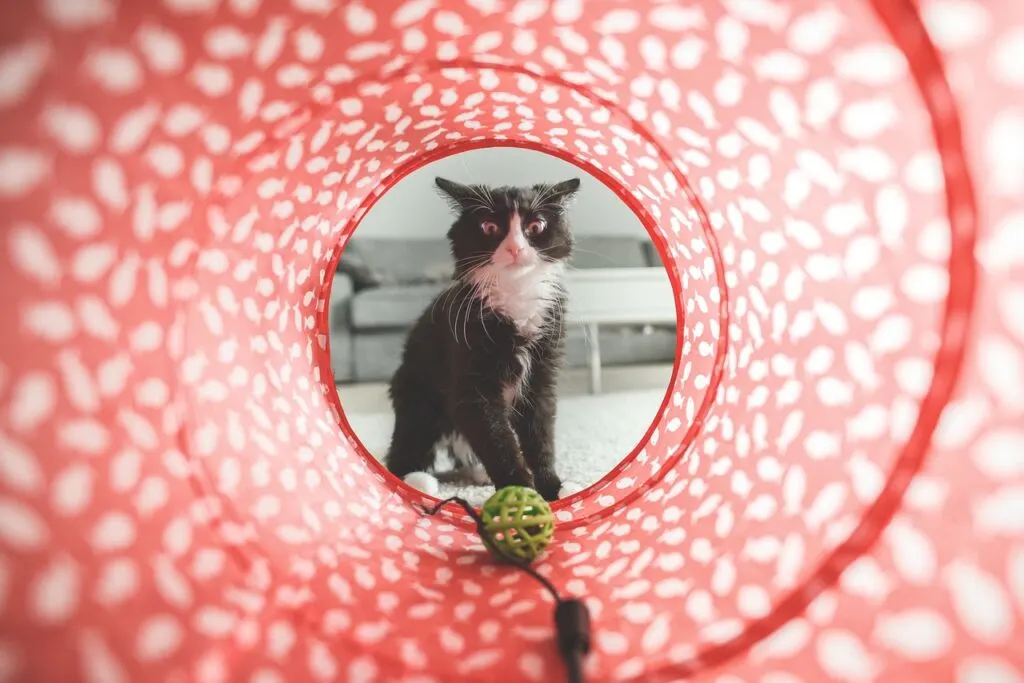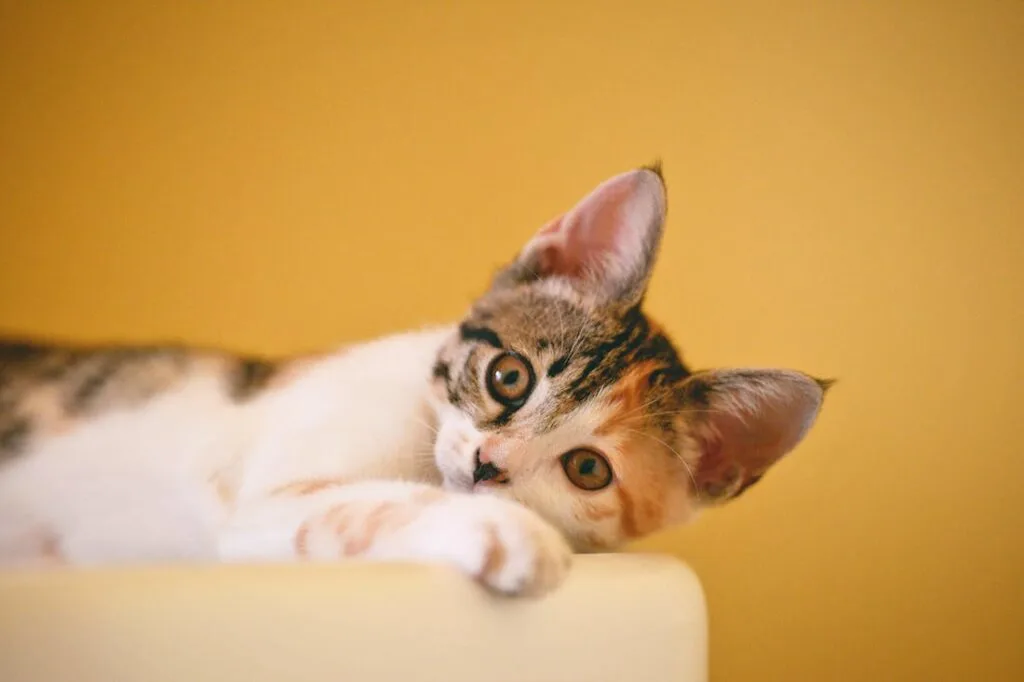This post may contain affiliate links. I only recommend products I use and love. Read the full disclosure here
Last Updated on March 8, 2024 by Alaina
Cats, with their mysterious aura and affectionate personalities, have captured the hearts of many as beloved pets. However, feline friends can sometimes be enigmatic when it comes to their health issues, often hiding signs of discomfort or illness. Understanding the subtleties of their health signs and knowing when to seek veterinary assistance for common health problems in cats can make a significant difference in their well-being and longevity.

Today I am sharing some of the common health problems in cats, offering clear signs that pet owners can observe, coupled with actionable solutions to ensure that your feline companion maintains optimal health throughout its nine lives. Whether you’re a new or experienced cat owner, this knowledge is invaluable for providing the best care for your furry friend.
Understanding Feline Behavior and Health
Cats often communicate their well-being through behavior. A change in their usual routine or disposition might be the first indicator of a health issue. For example, a normally friendly cat that becomes withdrawn could be experiencing discomfort or pain. Maintaining a watchful eye on your cat’s daily habits is vital for early detection of health problems.
Having a basic understanding of what is typical for your cat in terms of activity, appetite, and social engagement helps you to notice when things are amiss. Suppose your cat shows a sudden disinterest in play or food, or perhaps an unusual level of aggression. In that case, it is essential to consider these behaviors as potential signals for health concerns.
Handling Cat Emergencies
Knowing how to react when your cat is in distress can mean the difference between life and death. A first aid kit tailored for cats is a must-have for any pet owner. This should include gauze, non-stick bandages, and hydrogen peroxide for inducing vomiting if instructed by a poison control center or veterinarian.
Recognizing signs of an emergency is equally critical. Difficulty breathing, blood in kitten stool, profuse bleeding, suspected poisoning, or seizure activity all necessitate immediate veterinary attention. Staying calm and moving quickly is essential while ensuring you keep the contact information of your local vet and an emergency clinic handy.
Common Feline Diseases and their Symptoms
The silent nature of cats can make it challenging to detect when they’re suffering from ailments. Nonetheless, there are common health problems in cats to be aware of, such as chronic kidney disease, hyperthyroidism, and diabetes. These feline diseases often present symptoms that themselves are subtle but progressive over time.
Chronic kidney disease may manifest through increased thirst and urination, weight loss, and lethargy. Hyperthyroidism can cause weight loss despite an increased appetite, restlessness, and a coarse fur coat. Diabetes shares some signs with these diseases and may also lead to urinary tract infections and an unsteady gait. Knowing these symptoms is crucial for timely veterinary intervention.
Regular wellness exams are effective for early disease detection. Between check-ups, maintaining a vigilant eye on your cat’s weight, appetite, and energy levels helps identify potential health issues before they escalate. Timely consultation with a veterinarian, along with the proactive use of cat supplements and vitamins, not only contributes to keeping your feline healthy but also improves their overall prognosis against common diseases.
Nutritional Needs and Diet Management
A balanced diet is as critical for cats as it is for humans. Providing your cat with adequate nutrition can prevent a host of common health problems in cats and contribute to a stronger immune system and overall health. Cats have specific dietary needs that differ from other pets, such as a high requirement for protein and certain amino acids like taurine.
Feeding your cat a diet that’s rich in high-quality proteins and low in carbohydrates can help maintain muscle mass and promote a healthy weight. The amount of food they need depends on their size, age, and activity level. Moreover, hydration is important, especially if your cat primarily eats dry food; providing a constant source of fresh water is vital.
Being mindful of your cat’s dietary habits is important too. Overfeeding can lead to obesity, which is a growing problem in the pet world and can contribute to diseases like diabetes. Regularly monitor your cat’s weight and consult with your veterinarian to develop an appropriate feeding plan customized to your cat’s individual health needs.
Preventive Health Measures
Preventative care for cats includes routine vaccinations, parasite control, and regular veterinary health checks. Vaccinations protect against several dangerous diseases, like feline leukemia virus and rabies. Maintaining an up-to-date vaccination record is part of responsible cat ownership.
External and internal parasite control is essential in preventing diseases carried by these pests. Fleas, ticks, and worms can cause a host of problems from skin irritations to life-threatening conditions if left unchecked. Speak with your veterinarian about the best parasite prevention methods tailored to your cat and living environment.
Veterinary check-ups, at least once a year, are pivotal in preventive health care. These visits can catch early signs of disease often before your cat may exhibit apparent symptoms. Your veterinarian can also provide valuable tips tailored to your cat’s age, breed, and health status, ensuring a proactive approach to their health care and helping to prevent some of the most common health problems in cats.
Emotional Well-Being and Environmental Enrichment
Cats not only have physical needs but emotional ones as well. A caring environment, affection, and mental stimulation are all crucial components of a cat’s overall health. Taking time to play with your cat and providing them with various toys can help keep them physically active and mentally engaged.
Environmental enrichment can prevent behavioral problems and stress in indoor cats. This can involve adding perches, scratching posts, and interactive toys to their living space. Access to windows can also allow your cat to watch the world outside, which can be a great source of entertainment and mental stimulation.

Final Thoughts on Common Health Problems in Cats
In conclusion, ensuring the health and happiness of our feline companions is a responsibility that comes with the joy of their companionship. From understanding and recognizing the signs of common health problems in cats to providing a nutritious diet, regular veterinary care, and a stimulating environment, each aspect is integral to their well-being.
By being attentive to their physical and emotional needs, we can help our cats lead fulfilling lives. Remember that a proactive approach to health and wellness can prevent or mitigate many common health problems in cats and that the bonds we build with our pets enrich our lives as much as we do theirs. Cherish every moment with your furry friend and continue to be the vigilant, loving cat owner they need and deserve.
